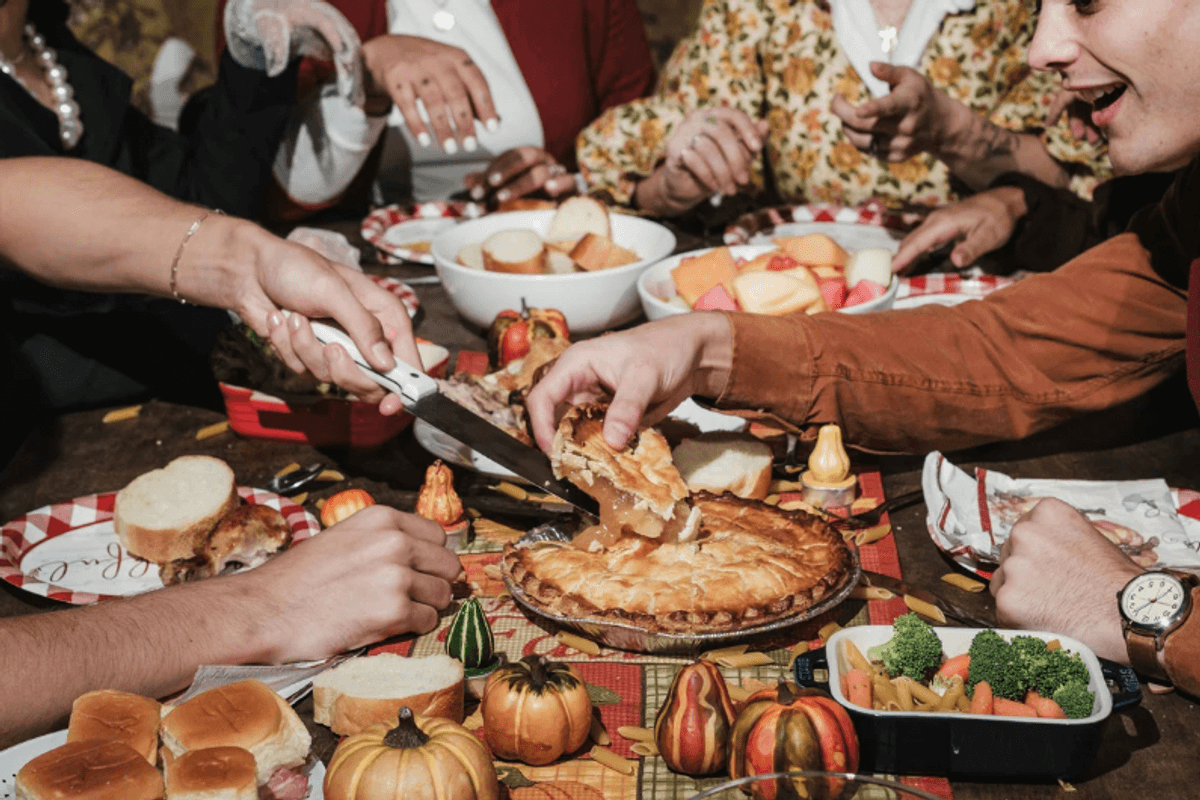Moms share 6 reasons why their ‘absent boomer’ parents won’t make time for their grandkids
"Why do they complain about not seeing the baby when they don't make any effort?"

A stressed, tired mom and her boomer parents.
There is a lot of discussion in online parent groups these days about how Gen Xers and millennials with baby boomer parents aren’t getting any support from them with their grandchildren. Sure, they will send a Christmas present or upload a photo to Facebook saying how much they love their grandkids. But even though they are retired, they just can’t make time for their grandchildren. Maybe it’s all the travelling they do, or they have a doctor’s appointment in a month, so they can’t be by.
Although it’s wrong to paint an entire generation with the same brush, it’s hard to ignore that baby boomers aren’t as interested in being grandparents as their silent generation parents, who seemed to have a different commitment to family. Baby boomers are more likely to be well off than their parents were, so they have more lifestyle options that take them away from family commitments.
A lot of folks aren’t shocked that baby boomers aren’t that into being grandparents; they weren’t that into being parents, so why should we think otherwise? The “Me generation” cohort started the massive upswing in divorces, was the first to embrace double-income households, and raised the least supervised generation in American history.

A group of parents who have absentee baby boomer parents tried to get to the bottom of why baby boomers aren’t that into being grandparents, and they came up with six reasons why they just aren’t around.
1. They weren't around when raising their own kids
"I’ve seen this question asked before, and it seems like answers boiled down to them not being particularly present parents themselves. Meaning, they often relied on their own parents to watch their kids, and this behavior carried on into their grandparenthood. They want the status of being grandparents without the heavy lifting."
"They’re just extremely selfish and were literally the ones that let us be latchkey kids, so they really didn’t parent either… I don't know why I expected anything different once they turned 60."
2. Self-absorption
The reasons are pretty varied, but come down to a level of self-absorption inherent in that generation. They are, and we’re driven by their wants, needs, and glory/success. My mom was an older mom, having establishing a very driven career. She was INCREDIBLY hands-on and present, honestly a fantastic mom, and we always joked about her needing grandbabies. Well, I finally gave them to her, and she’s just… not there. She lives half the country away from me, and there was the pandemic, of course, but it’s just been very noticeable and very odd. She sends gifts, she talks about how much she wants to see them, but just doesn’t. She hasn’t seen my second since she was born 7 months ago. ... She wants to focus on her now. Coming out to see the kids, being out of her comfort zone, not being in charge, not getting anything tangible from it, doesn’t meet a want that she’s not already meeting by sending gifts and delighting over pictures.

3. They are spoiled
"So I think it’s because they were an extremely spoiled generation that was emotionally stunted. So the boomers parents lived through the Great Depression. A lot of them had childhoods filled with poverty hardship, and very few childhood joys. So when they had their kids, they tried to give them a lot materially. This continued into their adulthoods when A LOT of us were pretty much raised by our grandparents. A lot of boomer were kind of absentee parents who either left us with family all the time or left us alone. Plus, their generation had very little access to mental health, and Vietnam was very traumatic (even for those who didn’t get drafted)."
4. Affluence
"They’re the last generation with a solid middle-class life with one breadwinner and can afford to retire. They DGAF about anything!"

5. Zero interest in paying it forward
"I think the part that's really hard to grasp is how much help many boomer parents had with their kids. ...I spent entire summers with my grandparents and remember them even coming to eat lunch with me at school. My child never recognizes my MIL at family gatherings. She has to be reintroduced each time. It's bizarre and beyond sad."
"When I realized how bullsh*t it was, especially since 75% of the time I was with grandparents, extended family, etc, it made me so mad. Like I was ALWAYS at someone’s house over the weekends and all summer vacation, my parents had so much help and ‘me time’, it’s ridiculous how little they help. Maybe that is the problem, they had TOO MUCH help."
6. The world revolved around them
"Baby boomers are named after the baby boom. As in - there are a LOT of them. When there is a big demographic, the world takes notice. Advertisers, planners, and politicians all jockey and cater. For most of their life, Boomers have had the world revolve around them a bit more than people of other generations."
- Baby Boomers | Articles and News - Upworthy ›
- Millennial mom gets real about 'absent boomers' who won't make time for their grandkids ›
- Mom calls out unfair 'double standard' of boomer grandparents who don't help with childcare ›
- Gen Xers are comparing themselves to the Silent Generation and the similarities are uncanny - Upworthy ›
- Gen Z is more similar to Boomers than Millennials for these 14 reasons - Upworthy ›
- Boomer grandparents are hands off--people discuss why - Upworthy ›
- Millennial mom calls out boomer grandparents for lying on Facebook - Upworthy ›
- Gen Xers and Boomers share outrageous behaviors that used to be considered 'normal' - Upworthy ›
- 45 free activities grandparents can do with grandkids - Upworthy ›
- 5 reasons why Baby Boomers are absentee grandparents - Upworthy ›
- People have newfound empathy for Boomers after video reveals truth - Upworthy ›
- 17 strange things Baby Boomer parents do - Upworthy ›
- Millennials share their boomer parents’ most baffling and laugh out loud habits - Upworthy ›
- Young people share their petty 'boomer' complaints, proving old folks can be right - Upworthy ›



 A Baby Boomer garage filled with stuff.
A Baby Boomer garage filled with stuff.
 Dirty dishes left on a tableCanva
Dirty dishes left on a tableCanva Gif of overwhelmed waitress via
Gif of overwhelmed waitress via 


